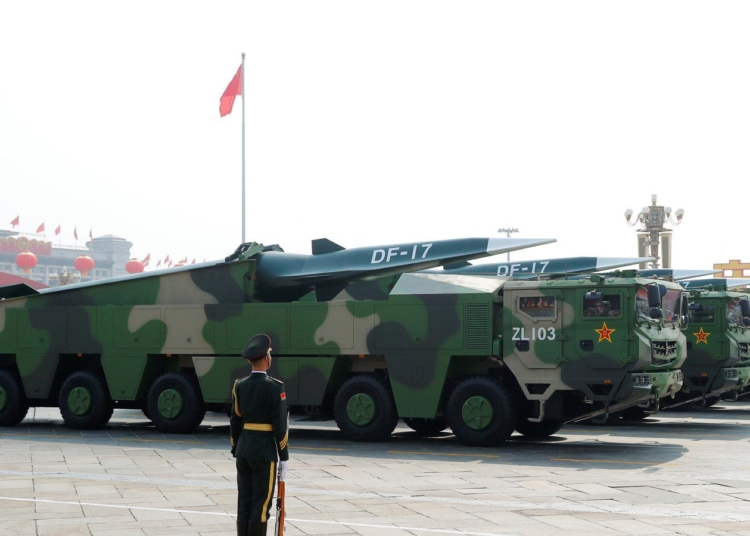This article explores the top 10 breakthroughs in military technology that are set to shape the future of warfare. It highlights advancements such as hypersonic weapons, which can travel at Mach 5 or faster and strike targets with unprecedented speed and precision. Artificial Intelligence (AI) is also revolutionizing military operations, from autonomous vehicles to combat drones. Quantum computing is poised to enhance military intelligence and cryptography, while directed energy weapons offer advantages such as low cost and high precision. Autonomous systems, 3D printing, cognitive enhancement, space technologies, nanotechnology, and biotechnology are also discussed. The article emphasizes the need to adapt to the ethical and strategic implications of these technologies.
Top 10 Breakthroughs in Military Tech: Discover the Future of Warfare
Introduction
The world of military technology is constantly evolving, with each passing year bringing new breakthroughs that push the boundaries of what is possible in warfare. These advancements not only enhance the capabilities of armed forces but also have the potential to reshape the future of global conflicts. In this article, we will delve into the top 10 breakthroughs in military tech that are set to shape the future of warfare.
1. Hypersonic Weapons
Hypersonic weapons, capable of traveling at Mach 5 or faster, are a game-changer in modern warfare. These missiles can strike targets across the globe within minutes, giving military forces unprecedented speed and precision. Hypersonic weapons are virtually unstoppable and capable of penetrating the most advanced defenses, posing a significant threat to adversaries.
2. Artificial Intelligence (AI)
Artificial Intelligence has already made significant inroads in the military sector. From autonomous vehicles to combat drones, AI is revolutionizing the way wars are fought. With the ability to process vast amounts of data in real-time, AI systems can aid in decision-making and improve the precision of military operations.
3. Quantum Computing
Quantum computing is poised to revolutionize military intelligence and cryptography. With the unprecedented computational power of quantum computers, complex encryption algorithms can be decrypted in minutes, enabling military forces to gather crucial intelligence that would have previously been inaccessible. Quantum computing will also enhance the development of optimized logistics and communication networks.
4. Directed Energy Weapons
The development of directed energy weapons, such as lasers and electromagnetic railguns, marks a significant breakthrough in military technology. These weapons utilize concentrated beams of energy to destroy or disable targets. Directed energy weapons offer several advantages, including low cost per shot, virtually unlimited ammunition, and high precision.
5. Autonomous Systems
The rise of autonomous systems, including drones, robotic vehicles, and unmanned submarines, is transforming the battlefield. These systems can perform a wide range of tasks, including reconnaissance, surveillance, and combat, without risking human lives. Autonomous systems have the potential to reduce casualties and revolutionize military operations.
6. 3D Printing
3D printing has the potential to revolutionize supply chains and logistics in the military. From printing spare parts on the battlefield to manufacturing complex weaponry, 3D printing offers a more flexible and cost-effective solution. This technology reduces the dependency on traditional manufacturing processes and improves sustainability in military operations.
7. Cognitive Enhancement
Cognitive enhancement technologies, including brain-computer interfaces and neural implants, are on the horizon of military tech breakthroughs. These technologies could enable soldiers to communicate seamlessly with AI systems, enhance decision-making capabilities, and improve memory and sensory perception. Cognitive enhancement has the potential to give soldiers a significant advantage on the battlefield.
8. Space Technologies
Advancements in space technologies, such as satellite systems and anti-satellite weapons, are shaping the future of warfare. Satellites provide critical communication, reconnaissance, and navigation capabilities, while anti-satellite weapons can disrupt the adversary’s infrastructure. As space becomes an integral part of military operations, these technologies will play a vital role in shaping the battlefield.
9. Nanotechnology
Nanotechnology holds immense potential for military applications. From lightweight, high-strength materials to self-healing surfaces and enhanced sensors, nanotechnology can revolutionize combat gear and equipment. Additionally, nanoscale devices can be utilized for various military purposes, including targeted drug delivery and surveillance.
10. Biotechnology
Advancements in biotechnology have significant implications for military medicine and human performance enhancement. Gene editing techniques can be employed to develop soldiers with enhanced physical and cognitive abilities. Additionally, biotechnology can enable the development of new medical treatments, such as advanced wound healing and regenerative therapies, for combat casualties.
Conclusion
The top 10 breakthroughs in military tech outlined in this article provide a glimpse into the future of warfare. From hypersonic weapons to AI systems and space technologies, these advancements are poised to reshape the battlefield and revolutionize military operations. As these technologies continue to evolve, it becomes crucial for nations to adapt and navigate the ethical and strategic implications associated with the future of warfare.












